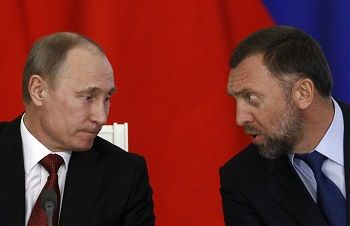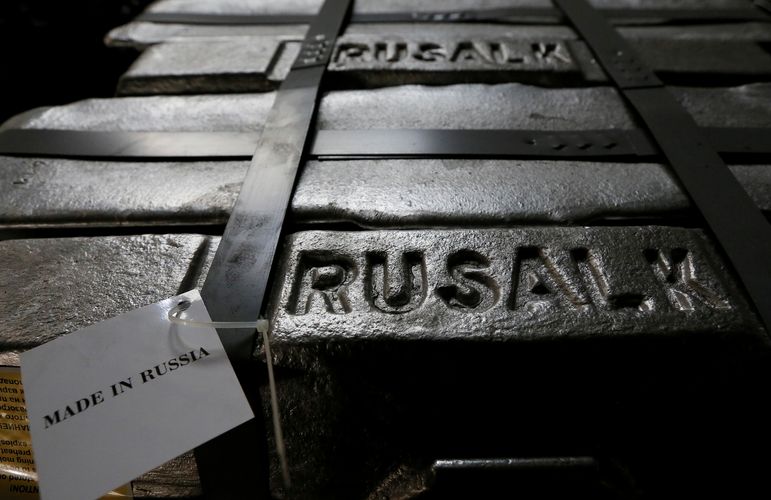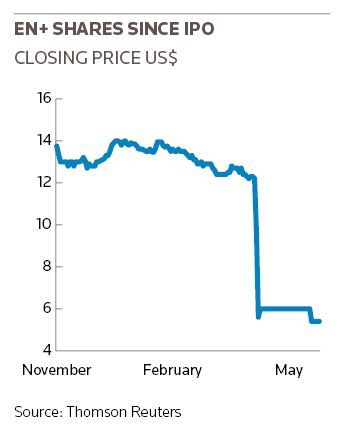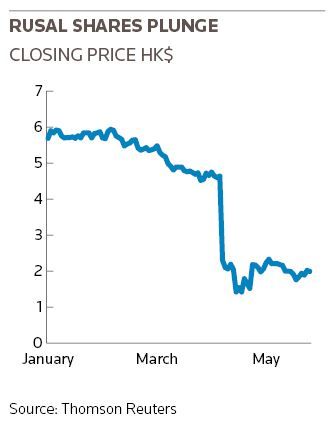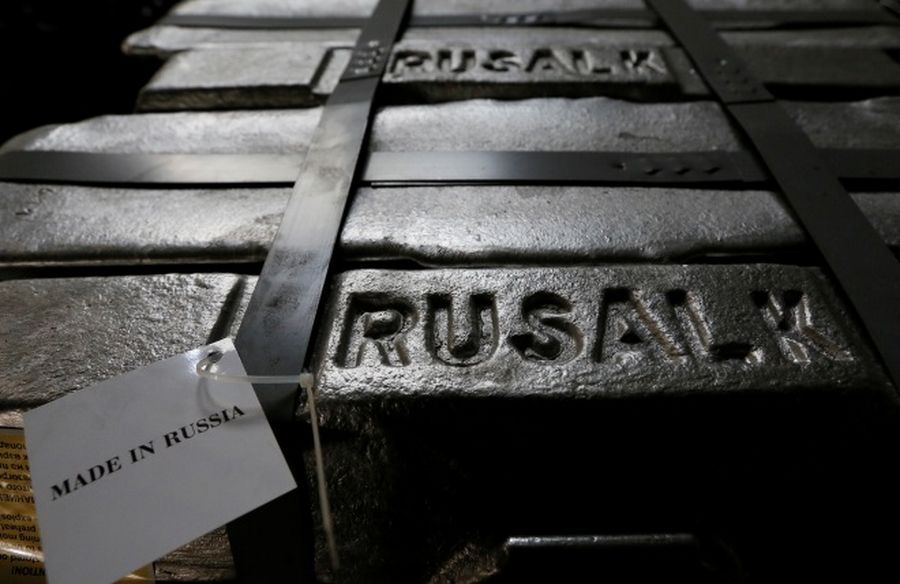
Russia is preparing to rewire parts of its financial system to prevent the latest round of US sanctions, which were ratcheted up last month to target 24 people close to the Kremlin, from wreaking further damage on its banks and wider economy.
Bankers in Moscow say that Promsvyazbank, which was brought under state control in December after falling into financial difficulties, is being primed as a “universal bad bank” that will continue lending to sanctioned companies and take on loans they owe to Russia’s biggest banks.
The main beneficiaries of the plan are likely to be EN+ and Rusal, the power and aluminium businesses of Oleg Deripaska that have found themselves ostracised by clients and the wider financial system since the oligarch was included on the latest list of sanctioned persons on April 6.
Rusal, which is the second-largest aluminium producer in the world, has been worst affected. Clients have halted purchases and threatened to rip up contracts unless sanctions are removed. Banks have also frozen payments to and from the company and threatened to halt any dealings with the group.
The aluminium giant warned on Thursday that it may be left unable to service its debts if the current situation continues. Rusal and EN+, which as well as owning energy assets also owns about half of Rusal, collectively owe almost US$13bn in debt – mainly to Russian banks Sberbank and VTB.
“The strength of the sanctions is such that it completely cuts you off from the outside world,” said one banker who has worked with both EN+ and Rusal. “Your sales collapse, your working capital collapses, your financing collapses so that your capital structure is in complete disarray. It is very painful.”
CRITICALLY IMPORTANT
The PSB plan being put together would inject liquidity into the two to allow them to continue to function. That would prevent further damage to two companies that are critically important – especially in Siberia, where several towns are almost entirely economically dependent on one or other of the two companies.
The move is seen as a back-up plan in case other efforts to have sanctions lifted don’t work out. Deripaska has resigned from the boards of EN+ and Rusal, while EN+ chairman – former UK energy minister Greg Barker – is seeking a buyer for all or part of the oligarch’s stake, which might lead to sanctions being lifted.
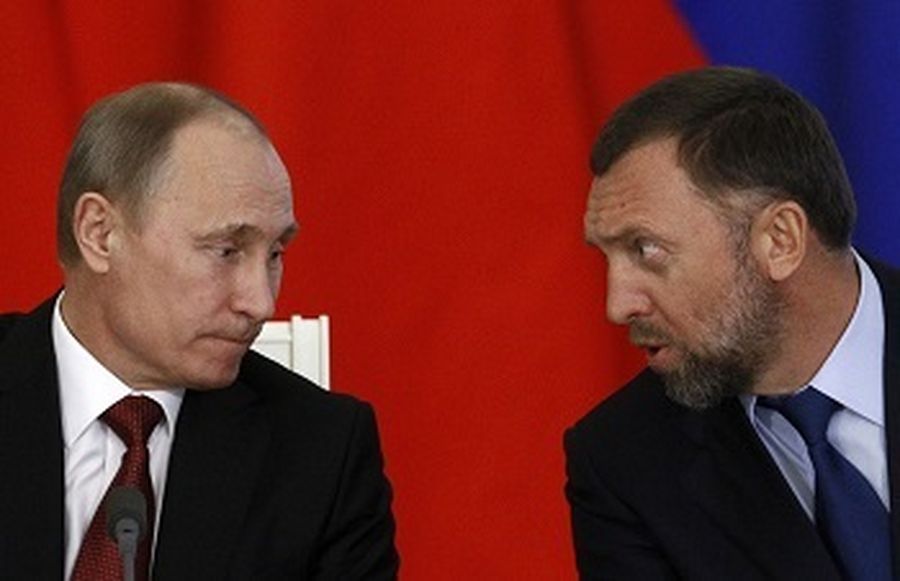
“The risk is that this situation might go on for quite some time, so the authorities need to find an interim solution,” said one person close to Rusal, adding that the consequences of a collapse of either company would extend well beyond their liabilities to the banks.
“Rusal is a big employer – 60,000 people or more – and so a solution simply needs to be found to ensure those people still have jobs,” he added. “On top of that, EN+ is systemically important to the supply of electricity in Siberia. This really is a big, big problem for the Russian government.”
PSB has already shown its willingness to help sanctioned companies over recent weeks, lending money to Renova, which is owned by Viktor Vekselberg, who was also on the April list. The bank is also in the middle of buying loans made to sanctions-hit defence companies by Sberbank and VTB.
Still, it is unclear how PSB would raise sufficient funds to pass on to sanctioned companies. It is also unclear whether it would buy outstanding loans directly from Sberbank, VTB and others – or whether it would make new loans that EN+ and Rusal would then use to pay off their old liabilities.
CONSTRUCTIVE SOLUTION
Sberbank chief executive Herman Gref has said he believes a “constructive solution” will be found. Russia’s largest bank is by far the most exposed. It has extended various loans to the companies, the biggest of which is a US$4.2bn facility that stems from Rusal’s purchase of a stake in Norilsk Nickel in 2008.
The loan has a chequered past: the initial facility was made by a consortium of international banks led by RBS in 2008. But when the financial crisis hit, plans to refinance the loan in bond markets were scrapped. State bank Vnesheconombank saved the day, with Sberbank refinancing the debt a year later.
Although the loan is over-collateralised – it is backed by a 25% plus one share stake in Norilsk Nickel, which was valued at US$7bn as of last week – it is unclear whether Sberbank will be able to continue receiving interest and principal payments without breaching sanctions.
Rusal also has a US$1.7bn pre-export financing facility arranged by several banks - including some Europeans - a year ago. Some have written off their exposure. EN+ has two large outstanding rouble loans: a Rbs87bn (US$1.8bn) facility from Sberbank and VTB, and another Rbs65bn facility from Sberbank.
The PSB plan would ensure that Sberbank and VTB, both of which operate globally, would not be in breach of sanctions. It is a departure from previous years, when the two stepped in to lend Russian companies that had become locked out of capital markets due to sanctions in 2014.
“The traditional reliance on the state-owned banking sector isn’t going to work, it just isn’t available,” said the banker. “What will likely happen is that the government will select one bank to effectively be a universal bad bank to allow other state-owned banks to clean their balance sheet of these loans.”
SCRAMBLE TO SELL
Holders of other EN+ and Rusal liabilities are also scrambling to comply with sanctions. US investors have been given until June 6 to dispose of any shares or bonds in the two companies. It is the first time that investors have been forced to dump outstanding securities linked to sanctioned firms.
Rusal has three US dollar bonds outstanding – a US$600m bond sold in February 2017, a US$500m bond sold three months later, and a US$500m bond sold this February. They were bid at around 40 cents on the dollar last week. It also has about Rmb11.5bn (US$1.8bn) of panda bonds outstanding.
Bondholders were initially unable to even sell out of the bonds to comply with sanctions because clearing houses had halted the processing of transactions for fear of flouting sanctions. Trading – and clearing – have since resumed, but is very slow as each transaction is being checked manually.
“Russian accounts are the obvious buyers,” said Nikolai Andreev, head of CEEMEA trading at Exotix. “And they are getting pretty good value. Clearly, US investors have to sell these bonds, and the lack of bidders was pushing the price down. Volumes are not large, though, just a few million dollars a day.”
Equity holders are also facing the same situation. Rusal shares, which are listed in Hong Kong, have lost more than half their value since the sanctions were announced last month.
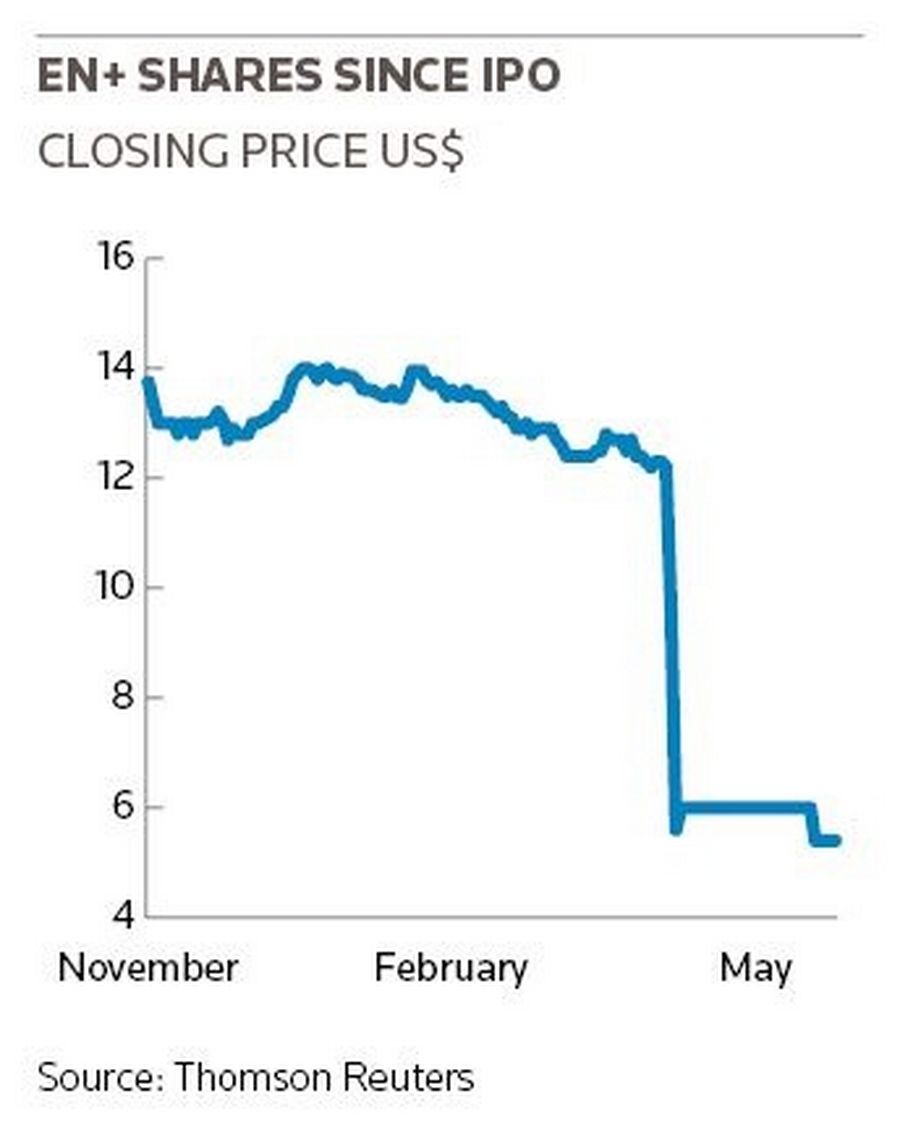
It is just over six months since EN+ listed on the London Stock Exchange, in a US$1.5bn deal. The beneficiaries of that were Deripaska, who cashed out of about US$500m of stock, and Russian bank VTB, because primary proceeds of US$1bn were used to repay early an outstanding loan.
Investors who bought into the IPO at a price of US$13.75 are now sitting on losses of 64%. Many are forced sellers. VTB said on Friday it had been left with a 9.6% stake in EN+ after a margin call was triggered on a loan to Singapore-registered investor Anan Group, which bought the shares in the IPO.
EN+, Rusal, and the three Russian banks didn’t respond to requests for comment for this article.
“So many US investors are holding Rusal bonds, and quite a lot hold equity in both companies and these guys have suffered big losses,” said the banker, who added that US authorities may now regret having inflicted such big losses on investors.
“I don’t get a sense that they had a full understanding of what they were doing,” he added.

